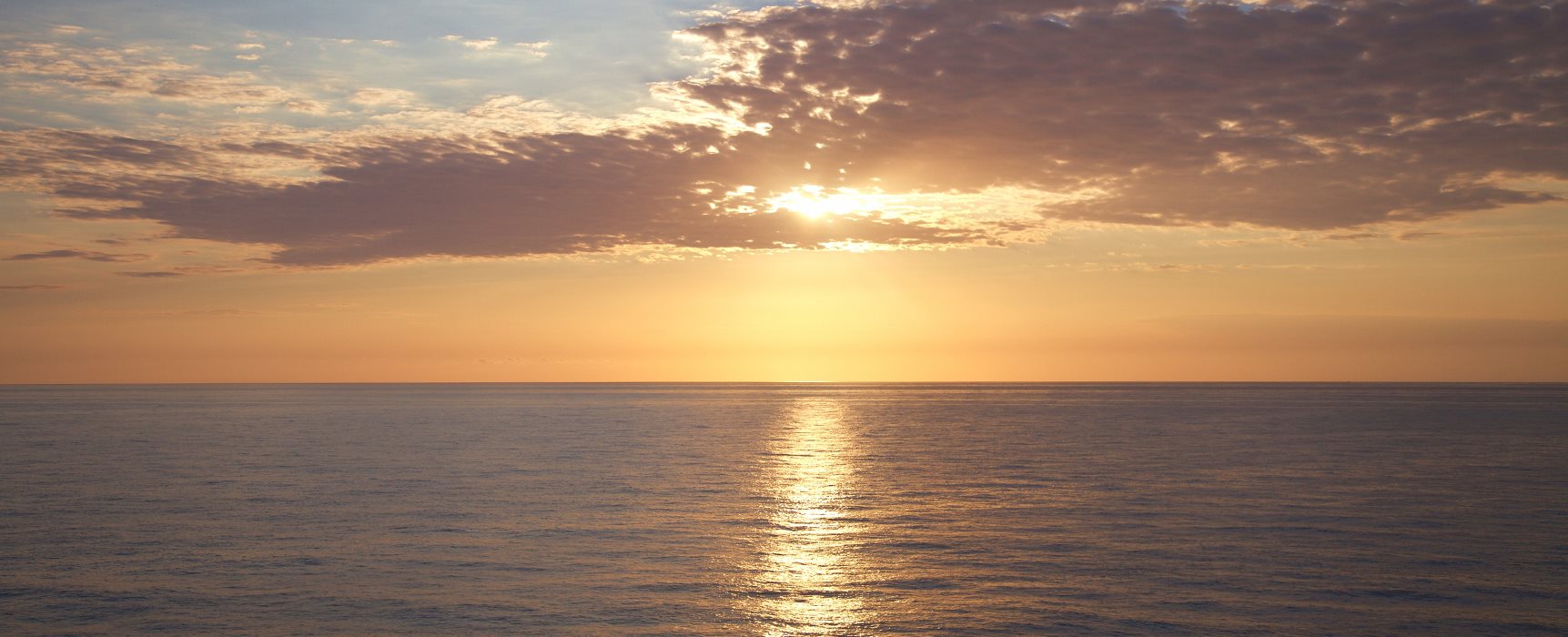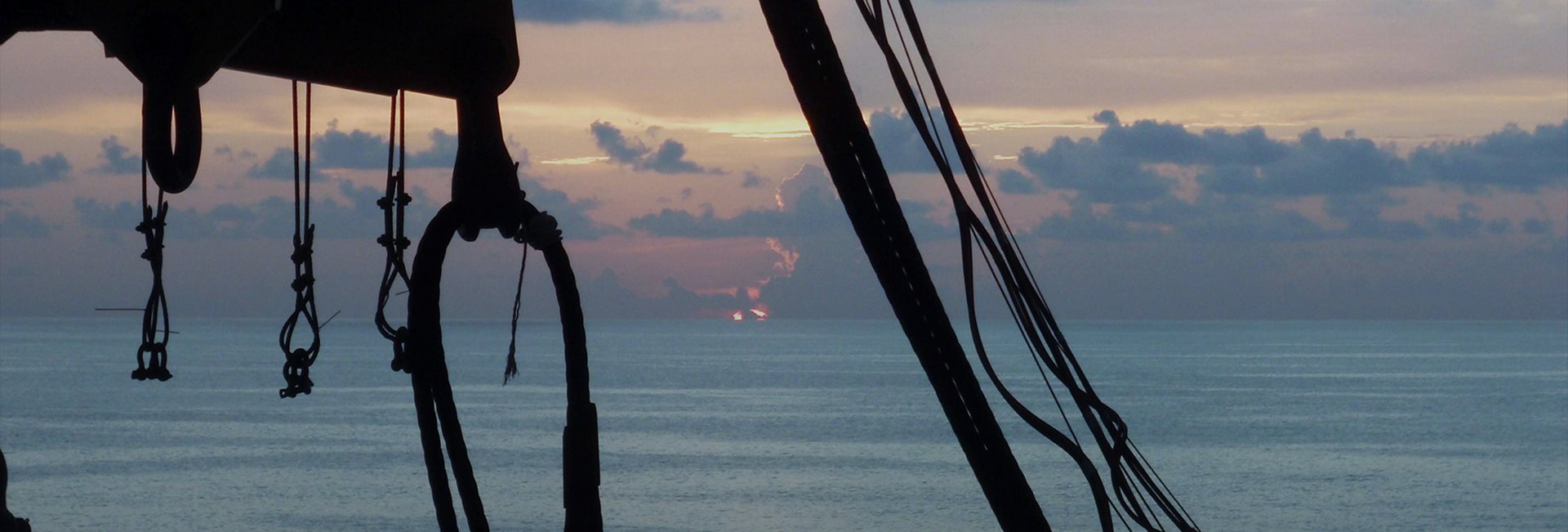Facilitating engagement for the energy industry among young people
In BW Offshore, students and pupils are able to attend internships or student placement with the Company to foster understanding, and support to create engagement for young people to join the energy industry.
In March 2022, BW Offshore facilitated a student placement for a young lady attending high school in the Netherlands, who spent a week in the Company’s Oslo office. During her placement, she got the opportunity to speak with several employees on the ongoing energy transition, and was asked to summarise her impressions in this article related to Global Earth Day, marked on April 22.

(This article is written by Yldau (16), high school student and BW Offshore intern, 2022.)
Getting an understanding of the complexity of the green transition for industry stakeholders
To mark Global Earth Day, companies around the world show their support for environmental protection for a brighter future. BW Offshore does this by engaging in the transition to renewable energy sources.
This year's theme is 'Invest In Our Planet', mainly directed to companies and their ESG performance. As noted on Earth Day’s website, ''Unless businesses act now, climate change will deeply damage economies, increase scarcity, drain profits and job prospects, and impact us all.''
In March, I spent a week as an intern in the Communications Department of BW Offshore. I was challenged to do some research to get a better understanding of the company’s activities and focus on sustainability and environmental issues. To do this, I interviewed different people from different departments.
Keeping this year’s theme for Earth Day in mind, I asked a few key employees (Anders Platou, Head of Corporate Finance & Strategy; Fredrik Savio, SVP Project Development; and Ruth Jago, Environmental and Regulatory Compliance Manager) about BW Offshore's development, sustainability strategy, and the company’s future, considering that BW Offshore is, after all, an oil and gas company.
Many questions were asked about BW Offshore’s performances and actions for helping the environment.
Understanding BW Offshore’s strategy
There is a clear focus on sustainability in BW Offshore's actions and strategy, as the company, like the rest of society, needs to adapt. As people view sustainability as an essential factor, companies need to adapt in order to secure continued funding. Simply put, the companies that adapt the quickest will get access to more capital. With increasing pressure on the oil and gas industry, not that that is bad, I can understand that the pressure makes working for an energy company a different experience. Especially Anders, as he is working in finance, sees a significant shift because investors are less likely to invest in an oil and gas company these days. However, he said that that is good, as capital largely influences the world, and so much more changes can happen.
During my week with BW Offshore, I realised that the projects for renewable energy, such as Scotwind, will take time to be developed, and that renewable energy will actually be a minor percentage of the overall cash flow for BW Offshore in the near future. On the bright side, there are going to be more renewable projects. Plus, newer FPSO projects are being done differently. For example, during the design of the Barossa project, BW Offshore has been able to reduce the environmental footprint. In addition, they have selected new technologies for efficient power generation. This power generation causes the energy demand for the Barossa FPSO to decrease compared with older FPSOs.
When I asked Anders and Fredrik about their experiences, their responses surprised me. They both said that it was exciting that the oil and gas industry is key to making the transition to renewable energy. Because BW Offshore is embracing the transition, they can make an impact for a sustainable future.
Why doesn't the company switch from fossil to non-fossil?
This question is a very straightforward question I had for BW Offshore as energy is essential for our daily life. So, why does BW Offshore not operate in green energy only so it can tribute to our future?
I understood from the interviews that the world actually needs oil and gas in the transition phase. Eventually, everybody (including BW Offshore) will have to significantly reduce emissions, but that does not happen overnight. So, while the transition might be slow, it is crucial. By mid-2030, there will probably be no new oil and gas projects, so if BW Offshore switches from fossil to non-fossil, 2050 is realistically possible for the company to have completely switched.
Emissions from fossil energy must be managed. One way is carbon capture storage, in which BW Offshore is interested and has ambitions to start projects. With carbon capture, the environment is not affected by CO2. Learning about this, I had another question: “Isn't there going to be consequences to capturing CO2?” As Fredrik explained, it has to be done correctly, and there are always risks of leaks, like in all projects. However, he assured me that there are tremendous experiences in the business that can be leveraged, and as an industry, we are capable.

How does the company avoid leaks of oil to the environment?
Mentioning leaks, I asked about what BW Offshore does today to avoid leaks from its FPSOs. Ruth Jago, Environmental and Regulatory Compliance Manager confirmed that BW Offshore has not had any major leaks in the last five years. The company operates in a well-regulated industry in preventing and dealing with leaks. I found out that avoiding leaks is a priority in BW Offshore, and that the company lists leaks as a significant environmental aspect, which means that BW Offshore has management systems to prevent leaks from occurring, and procedures to follow up if any leaks occur. BW Offshore makes sure that what they say on paper, actually happens, and that they always have trained people available to respond to any incidents.
I also learned that BW Offshore just started working with a new Artificial Intelligence system, OPEX, which will help them optimise their assets for lower carbon emissions.
Focusing on environmental solutions
I was interested in what BW Offshore has done next to minimising greenhouse gas emissions. What many might not know is that BW Offshore has paired with Seven Clean Seas, a South-East Asian organisation, who look for sustainable ways to collect plastic waste in the ocean and dispose of it responsibly. In addition, Seven Clean Seas will assist with identifying single-use plastic strains on BW Offshore’s FPSO BW Catcher, so BW Offshore can eliminate or replace those for a sustainable solution when single-use plastic strains are identified. When hearing about this, I raised the question: ''Will all FPSOs have that system in the future?'' Ruth, who is responsible for the company’s environmental reporting, told me that BW Offshore has a five-year plan which started last year. So hopefully, in four years, all the company’s FPSOs will have that system. She also said an international agreement is being drafted at UN level, which creates a global framework to eliminate single-use plastic. When this agreement is finalised, there will be more pressure on the supply chain, and then much progress will happen.

Consider the future - if I, as an engineer, want to work for this company in seven years, how will the company look, and what would I/engineers be working on?
Anders confirmed that by the time I would finish my degree (if I become an engineer), Scotwind will be up and running, so more opportunities will exist to work with floating wind farms. However, in 2029, BW Offshore will still be operating in oil and gas. But carbon capture is an innovation that could be used and worked on in seven years. As the world will need energy, it will still be dependent on oil and gas.
So, my generation will still be working with and be dependent on oil and gas. But hopefully, when I start working, we will be more towards the end of the transition phase and a green future in more in sight.
Not one technology will change the world, said Ruth; it will be a mix. Different energy sources are going to be needed for different circumstances. BW Offshore looks for technologies for the transition and invests in new technologies for the future.
Sustainability is high on the priority list for BW Offshore, and they are helping to take steps in the right direction. Nevertheless, there is always room for improvement. I look forward to checking in on the company in seven years (when I finish my degree – hopefully), to see if they have improved on the areas mentioned in this article, and if they are meeting their goals on sustainability.